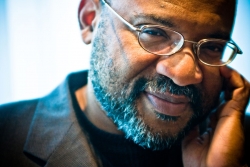All God's children got shoes
When I get to heaven I'm gonna put on my shoes
I'm gonna walk all over God's heaven
It is apparently remarkable that for most of my life I have never had, at the same time, more than two or three pairs of shoes. A pair of walking, everyday shoes, some sneakers, and then, perhaps, a pair of sandals. More often than not, my walking shoes were as formal as my shoes would get. When I got married, my mother bought me a pair of dress shoes. For years after that, those shoes became my formal shoes. Once I moved to colder climates, I added some form of winter footwear to my wardrobe. Admittedly, this modest record of shoe ownership was not a product of eccentricity. For years it was merely a fact of life, pragmatism. In my teens, the tough leather cadet boots I kept in my cupboard were the only variant. I did not buy those. They were government issue. So for years it was a matter of affordability. Later, when I could have afforded more shoes, I don't think I saw a need. But there was another reason: my feet. Specifically, my right foot.
At age six I was ran over by a car. The broken ankle was badly reset. From then on, and even still today, I have lived with some level of pain in that right foot. Today I am undergoing physiotherapy for this ankle. Whatever progress I thought I had made three years ago in ordering up three fancy pairs of shoes was being undermined. The combination of arthritis, wear and tear from aging, and what I suspect was trauma caused by switching shoes too many times culminated in a period of excruciating ankle pain. I went to a doctor who examined the foot and diagnosed ankle fatigue. At the end of it all I was down to one regular, reliable pair of shoes and an occasional dress pair. Now more than ever I understand that I hate changing shoes or getting new shoes because my ankle cannot abide variety nor can it handle the breaking in of new shoes. I have heard that professional basketball players will change sneakers every few games. I do not understand how this could be comfortable. For me new shoes are a kind of stubborn clay that has to be molded to fit the peculiar shape of my feet.
The shoe is an old symbol of value and meaning. Colonialism did not bring footwear to the southern hemisphere, but it turned the notion of being shod into a symbol of achievement. In so many countries and cultures, the relationship between the feet and the earth is a fraught one that has had to accommodate sophisticated negotiations between the bare foot and the ground. In many cultures royalty always seeks to keep space between earth and feet. In others the spirits find their way into the body through a thoroughfare between the feet and the earth. Spirits travel to the earth though poles and then, it is through feet that they find their way into bodies.
But western colonialism managed to institute the shoe as a symbol of value, of civilization, of cultural ascendancy. Yet, curiously, this paragraph will not turn into a lament at the horrible incursions of colonialism. For one, I think the shoe or at the very least, the shodding of feet, has been around for much longer than colonialism and in various cultures for various different reasons. Secondly, of all the terrible peculiar pretenses to civilization that colonizers stamped on some of their rituals, the privileging of shoes might well be the least innocuous. There are, you see, some practical uses to shoes that pertain to health, to comfort, and to aesthetics. It is true that in tropical lands, the shoe as a means to protect the feet from cold is not a critical thing, and there is a great deal that can be said for the barefooted person who finds useful ways to connect effectively to the soil. Heck, one of the more modern innovations of the late 20th century has been the invention of shoes that look and feel like bare feet. That said, there are all kinds of critters that penetrate the soles of feet that are simply not pretty. They can kill.
Yes, there are many political reasons to talk about shoes, but we chose the shoe for our purposes because it is one of those things that has entered the life of most people walking the planet today. And our relationship with shoes is as complex as our relationship with other forms of clothing and, some might argue, with our food. The core principle of the shoe is to create a second layer of self that will actually become, for a time, an extension of who we are. This is an intimate thing. But the shoe is also a commodity, a thing that costs money and that carries all kinds of symbolic meaning as an object of value.
One of the striking revelations that comes with this edition of FUSION is just how shoes become a theme that manages to engage in complex ways the imagination and interest of people from different cultures. Our search through the Prairie Schooner archives was, as usual, quite rewarding, and the process of discovering so many gems that explore the theme of shoes reminds us of a theory I have carried for many years: That with enough time and resourcefulness, it is possible to find a poem of quality that deals with any subject one can conceive of. It turns out that shoes was an easy one. This Fusion enters a conversation with yet another culture of complexity and fascination. Beverley Nambozo's curating of the poems by poets from Uganda represents a splendid addition to what is becoming a world-wide conversation that celebrates the ways we connect with—andthe ways in which we stand distinct from—each other.
